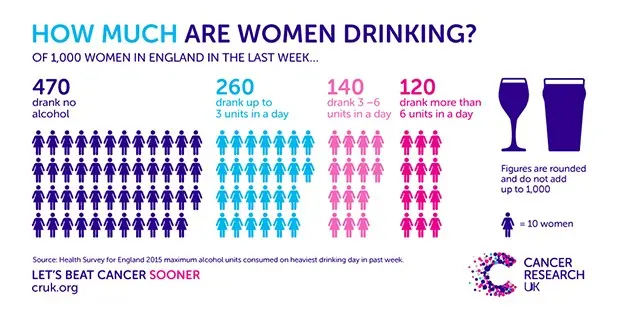Teenagers and young women who drink alcohol frequently are more likely to develop benign breast cancer, which increases the risk of cancer, according to a US study published in the Pediatrics journal.
As one of the authors of the study points out, Dr. Graham Colditz of Washington University in St. Louis, about 80 percent of breast tumors is of a benign nature. However, the dangerous thing is that they can develop into a malignant neoplasm of the breast, i.e. cancer.
Until now, the relationship between the amount of alcohol consumed and the risk of breast cancer has been known in middle-aged and elderly women.
Researchers from Washington University, together with colleagues from Harvard University, for 11 years collected data on alcohol consumption in a group of 6.899 girls and young women, who were between 9 and 15 years of age at the start of the study.
It found that participants who consumed more alcohol were more likely to develop benign breast cancer. For example, those who drank alcohol 6-7 days a week were 5,5 times more likely to be diagnosed with benign cancer than peers who drank no alcohol or drank less than one alcohol per week. In adolescents and young women who consume alcohol, the risk increased threefold within 3-5 days a week.
Patients diagnosed with benign breast tumors generally drank more and more, and their daily alcohol consumption was estimated to be twice as high as that of their peers without breast cancer.
According to the authors of the study, these studies clearly show that the risk of benign breast tumors increases among adolescents and young women in direct proportion to the amount of alcohol consumed. This proves that adolescence and early adulthood are key periods in the prevention of breast cancer. Unfortunately, many women start drinking in their teens, just as the tissues within the mammary gland enter a stage of rapid duplication, the researchers note.
As Dr. Colditz reminds us, the risk of breast cancer can be reduced not only by limiting alcohol consumption, but also by eating a healthy diet and being physically active to help you stay lean. (PAP)










